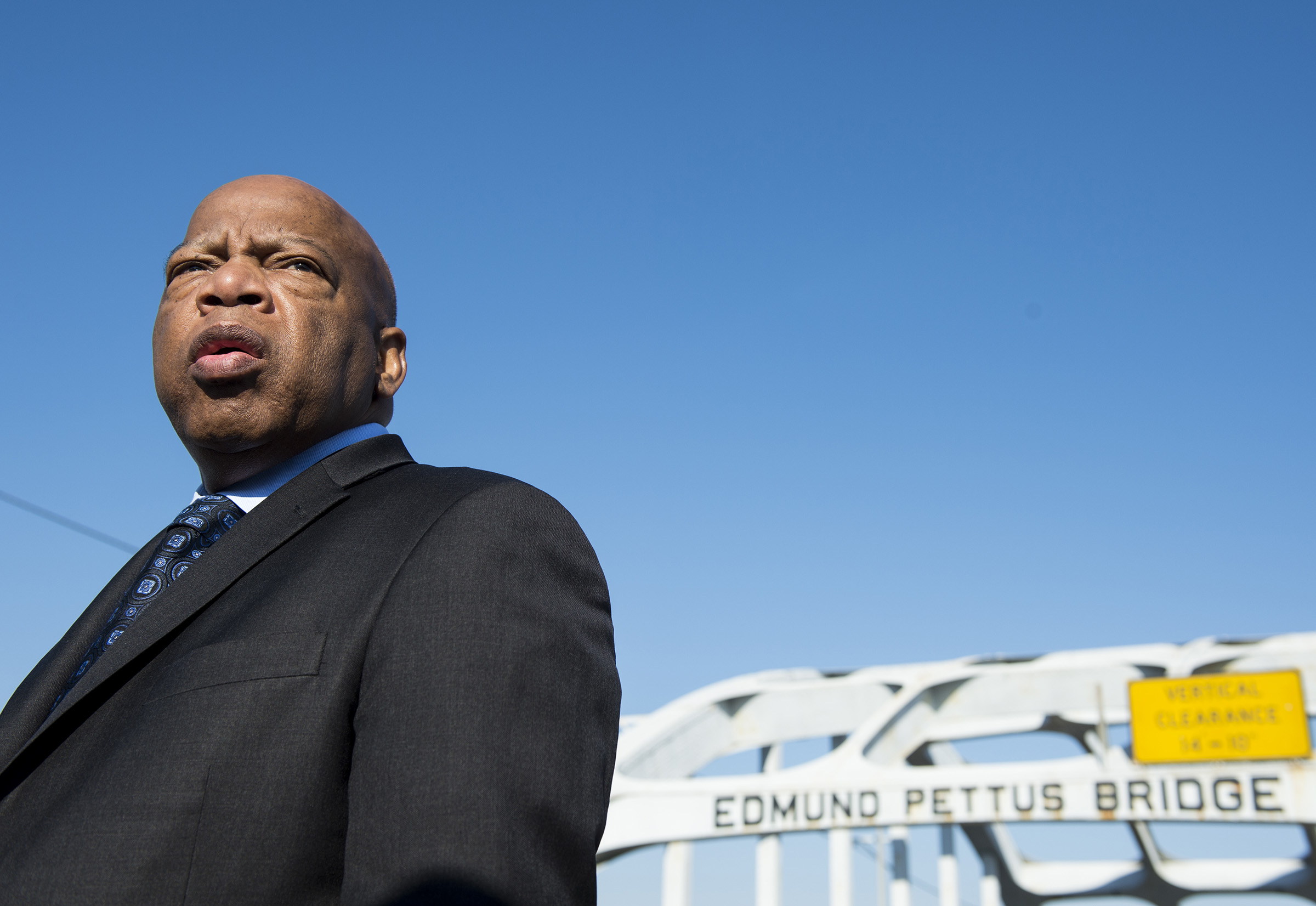
I was in my second year at Georgetown Law School at the time of John Lewis’s history-changing march over the Edmund Pettus Bridge in 1965. I remember being outraged at the actions taken by Gov. George Wallace and his state troopers and inspired by the marchers. I could not have possibly known the extraordinary relationship I was to have with the young man from Troy who walked at the front of that march.
Although I, like so many others, was in awe of John, I did not get to know him well when he first came to Congress. While he was the most well-known of his freshman class, which included Joe Kennedy II and all-American basketball star and Rhodes scholar Tom McMillen, he was one of the least assertive and outspoken. He didn’t need to be. His past work spoke loudly for his character, his conviction, and his extraordinary courage. He had already made a greater contribution to our country and its principles than the cumulative ones of his colleagues.
My earliest discussions with John were about the Americans with Disabilities Act (ADA), of which I was the principle House sponsor. It was then that I heard his deep commitment to all who were excluded and marginalized; his love for others and his deep conviction that those with disabilities were, as he was, children of God and that the distinction of their disability must not be a basis for discrimination. John confirmed and strengthened my perception of the ADA’s purpose and importance.
One of John’s freshman classmates was Amo Haughton. They could not have been more different. John – the child of dirt-poor Alabama sharecroppers. Amo – the wealthy heir of the Corning Glass family. One black, one white. One from the deep south, one from far north. But they shared a deep commitment to the equality of their fellow human beings and the central role our faith should play in strengthening our unity and our civility. To the benefit of all of us, they forged a partnership – under the umbrella of a wonderful organization called the Faith and Politics Institute – that allowed some 300 Members of Congress and thousands of others – to walk with John on the paths he had tread to honor his faith and the values of our Declaration and Constitution. Those walks lifted us up to higher places, above any partisan, petty, and temporary divides.
I was privileged to walk with John fifteen times across the Edmund Pettus Bridge and marvel at the courage that he, Hosea Williams, and the others who marched with him had that Bloody Sunday.
Two of my three daughters, all three of my grandchildren, and one of my great-grandchildren have made that trip with me and John. I am so thankful that they experienced the warmth, affection, patience, and power of this great American patriot. He showed them an example of the best of humanity, the best of our country; he gave them the hope that we as a nation were getting better and, through our efforts, could be better still.
It was on these trips that I saw how little ego John had and how deeply grateful he was to those who joined him to “return to Selma, one more time.” I believe that these trips were revivals and a regular renewal of a commitment to keep working toward the fulfillment of America’s promises.
As all who know him will tell you, for all of his historic contribution and world-wide fame, John was self-effacing, humble, and an unassuming man. He was a giant in presence and moral power but quiet and, until moved by moral compulsion or indignation, slow to speak.
My friend of fifty-plus years, Jim Clyburn, has observed that John did not give sermons but, rather, he and his life were sermons. Such was his example. Such was his powerful presence. His life inspired; his presence inspired; his words inspired; his calm and patient love uplifted, calmed, and gave us confidence for the future.
I have called John the most Christ-like person I have ever met. He embodied the traits that our faiths urge us to display: the love for one another that provides a path to the “beloved community” and the courage to face the seemingly impossible with a confidence and expectation of victory. It was so typical of John’s commitment and hope for his country that on the day of his funeral he urged all of us to continue the struggle, the good trouble, the quest for a more perfect union.
I loved John Lewis, and I love him still.
More Must-Reads From TIME
- The 100 Most Influential People of 2024
- The Revolution of Yulia Navalnaya
- 6 Compliments That Land Every Time
- What's the Deal With the Bitcoin Halving?
- If You're Dating Right Now , You're Brave: Column
- The AI That Could Heal a Divided Internet
- Fallout Is a Brilliant Model for the Future of Video Game Adaptations
- Want Weekly Recs on What to Watch, Read, and More? Sign Up for Worth Your Time
Contact us at letters@time.com